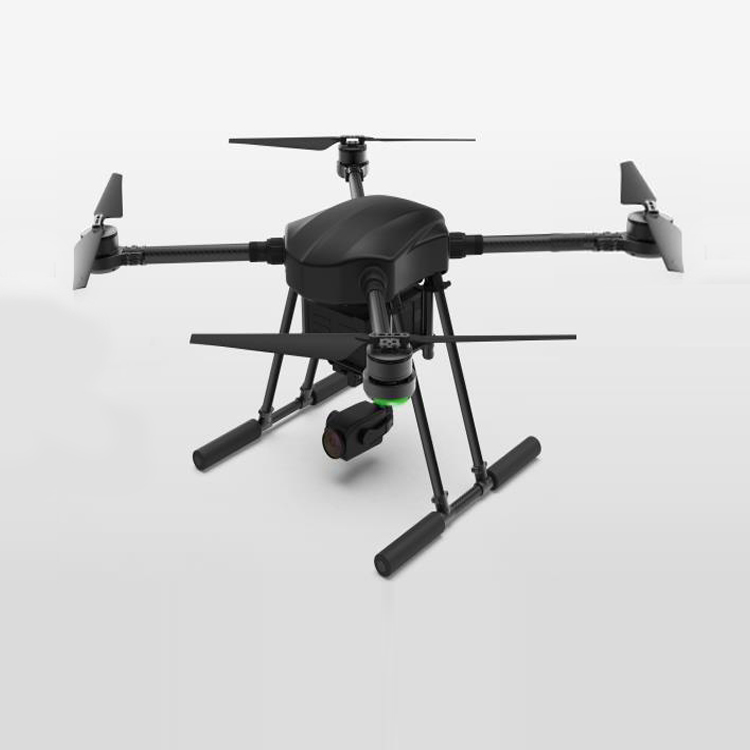Australian tech use drone to test precision pollination for crops

GRAND FORKS, N.D. — An Australian startup company that works on bee tracking will collaborate with the University of North Dakota to test how precision pollination can increase yields on pollination-dependent crops.
UND, the North Dakota Agricultural Products Utilization Commission and the National Sunflower Association worked to bring Bee Innovative from Australia to North Dakota. The venture will begin testing a concept known as precision pollination, using drones equipped with its BeeDar technology to track bees and monitor two sunflower fields in the Bismarck, N.D., area. A U.S. trial will provide a case study for farms growing pollination-dependent crops.
"BeeDar is a radar-like sensor which identifies, tracks and reports honeybee pollination activity in near real time," said Kate Lyall, Bee Innovative's chief technology officer. "By tracking honeybees in sunflower crops, farmers can make better use of hives to improve pollination, increasing yields and the value of their crop."
With nearly 100 commercial crops around the world relying on bee pollination, Lyall said Bee Innovative's technology provides an opportunity to significantly increase agricultural production without using more land. In Australia, Bee Innovative's technology has increased blueberry production by 20 percent. North Dakota's goal is for a 10 percent increase in sunflower production.
The National Sunflower Association, headquartered in Mandan, N.D., is coordinating efforts with the company to set up two nearly identical 20-acre fields for the experiment. UND researchers will work with Bee Innovative to evaluate crop health, monitor local weather conditions and track bees by using specially equipped unmanned aircraft systems. Lyall says unmanned aircraft systems are "the most efficient platform to deliver" BeeDar.
The North Dakota Agricultural Products Utilization Commission awarded UND's John D. Odegard School of Aerospace Sciences $59,113 to conduct research in partnership with Bee Innovative. The Aerospace School is providing an additional $10,000 in funding for personnel and equipment. UND's Center for Innovation helped secure APUC funding and is assisting Bee Innovative with incorporating as a North Dakota business, as well as providing many of the assets it needs to succeed as a startup company.
UND's research team includes Mark Askelson, interim executive director of the Research Institute for Autonomous Systems, who will monitor climate in the test area; Paul Snyder, director of the UND Aerospace UAS Program, who will serve as project manager; Haochi Zheng, assistant professor with the aerospace school's Earth Systems Science & Policy Department, who will track bee health; and Mounir Chirt, a doctoral student who will assist Askelson.
Snyder said that while some details are still being worked out, he expects the project to begin this month.
"Once we get to the point where we have a crop, we'll be flying our UAS with a multispectral camera to get an idea of the crop health for both fields," Snyder said. "With Dr. Zheng's help, we also plan to work with the beekeepers to monitor hive health."
When the crop begins to flower, a UAS equipped with BeeDar will track the bees, enabling the development of pollination maps to assist in making adjustments aimed at improving the pollination in one of the fields.
"We'll get our end results and see how the two fields compare," Snyder said. "We have to make sure we're working with the bee producers in the state and working with the farmers. It must be a collaborative effort if we're going to see the results we want."
Customize Industrial Drone frame with rotor, 1-5KGS payload for camera and other equipment.
Flight platform for customize industrial Specially designed for industry applications. with modular design concept, the main components can be quickly disassembled and assembled, flexible and multi-purpose, convenient for customized demand expansion, and the whole frame adopts dumb black coating, which shows processional stability.


